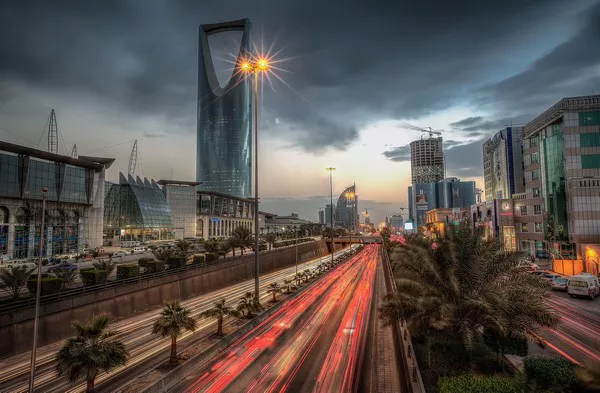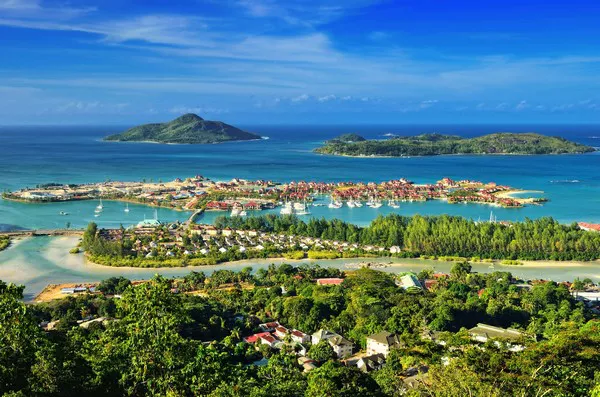The Middle East, a region known for its rich history, cultural diversity, and geopolitical significance, is home to some of the world’s most influential nations. Spanning from the Mediterranean Sea to the Arabian Peninsula, the Middle East plays a pivotal role in global politics, economics, and security. As power dynamics continually evolve in this dynamic region, it becomes essential to assess the strengths and capabilities of its key players. In this article, we delve into the ten most powerful countries in the Middle East, analyzing their geopolitical influence, military prowess, economic stability, and regional impact.
10 Most Powerful Countries in the Middle East
1. Saudi Arabia
As the birthplace of Islam and home to its two holiest cities, Mecca and Medina, Saudi Arabia holds a unique position of influence in the Middle East. With vast oil reserves and significant geopolitical clout, the Kingdom wields considerable power both regionally and globally. Saudi Arabia’s leadership role in the Organization of Petroleum Exporting Countries (OPEC) allows it to shape global oil prices and influence energy markets. Additionally, the country’s strategic alliances with key Western powers, particularly the United States, bolster its standing on the world stage.
In terms of military capabilities, Saudi Arabia boasts one of the most advanced defense systems in the region, equipped with modern weaponry and a well-trained armed forces. The Saudi military intervention in Yemen, aimed at countering Iranian influence and supporting the Yemeni government, underscores the Kingdom’s assertiveness in regional affairs.
2. Iran
With a rich history spanning millennia, Iran exerts significant influence in the Middle East, driven by its geopolitical ambitions, revolutionary ideology, and robust military capabilities. As a Shiite-majority country, Iran plays a central role in shaping the dynamics of the region’s sectarian divide, particularly in conflicts such as the Syrian Civil War and the ongoing tensions with Saudi Arabia.
Iran’s nuclear program, though subject to international scrutiny and sanctions, remains a source of concern for regional stability. The country’s Islamic Revolutionary Guard Corps (IRGC), a powerful paramilitary force, extends Iran’s reach across the Middle East through its support for proxy groups and militias in Iraq, Syria, Lebanon, and Yemen.
Economically, Iran faces challenges due to sanctions and internal political unrest, yet its vast oil and gas reserves position it as a significant player in global energy markets. Despite external pressures, Iran continues to assert its influence, challenging the status quo and pursuing its strategic objectives in the region.
3. Israel
As the only Jewish-majority state in the Middle East, Israel occupies a unique position at the crossroads of three continents, wielding considerable influence in regional politics, security, and technology. Despite its small size, Israel boasts a robust economy driven by innovation and entrepreneurship, particularly in sectors such as cybersecurity, biotechnology, and renewable energy.
Militarily, Israel maintains one of the most advanced defense forces in the world, equipped with cutting-edge technology and a formidable intelligence apparatus. The Israel Defense Forces (IDF) play a central role in safeguarding the country’s security amid ongoing conflicts with Palestinian militant groups and regional adversaries.
Israel’s strategic partnerships with key Western powers, particularly the United States, provide it with diplomatic support and military aid, enhancing its regional deterrence capabilities. However, the Israeli-Palestinian conflict and tensions with neighboring states continue to pose challenges to long-term stability in the region.
4. Turkey
Situated at the crossroads of Europe and Asia, Turkey bridges the divide between East and West, playing a pivotal role in regional geopolitics, trade, and security. With a rich history spanning millennia, Turkey’s strategic location gives it significant influence over key transit routes, including the Bosporus Strait and the Dardanelles.
Economically, Turkey boasts a diverse and dynamic economy, driven by sectors such as manufacturing, tourism, and finance. As a member of NATO, Turkey maintains a powerful military force, equipped with modern weaponry and a well-trained army. However, Turkey’s military interventions in Syria and Libya have sparked controversy and strained its relations with neighboring countries and regional powers.
Politically, Turkey’s transition from a secular to a more Islamist-leaning government under President Recep Tayyip Erdogan has raised concerns about democratic backsliding and human rights violations. Nevertheless, Turkey remains a key player in regional affairs, balancing its relations between East and West while pursuing its strategic interests in the Middle East.
5. United Arab Emirates (UAE)
As a federation of seven emirates, including the global hubs of Dubai and Abu Dhabi, the United Arab Emirates (UAE) has emerged as a dynamic economic powerhouse and regional leader in trade, finance, and tourism. With a strategic location at the crossroads of East and West, the UAE serves as a vital hub for international commerce and investment.
Economically, the UAE boasts a diversified economy, with thriving sectors such as oil and gas, real estate, aviation, and tourism. The country’s ambitious Vision 2021 aims to transform the UAE into a knowledge-based economy and a global hub for innovation and technology.
Militarily, the UAE maintains a modern and well-equipped armed forces, with a focus on advanced defense systems and strategic partnerships with key Western powers. The UAE’s military intervention in Yemen, as part of the Saudi-led coalition, underscores its commitment to regional security and stability.
Politically, the UAE’s leadership plays a prominent role in shaping regional dynamics, advocating for stability, moderation, and cooperation among Gulf Cooperation Council (GCC) member states. Additionally, the UAE’s normalization of relations with Israel in 2020 marked a significant diplomatic breakthrough in the Middle East peace process.
6. Egypt
With a rich cultural heritage dating back to ancient times, Egypt occupies a central position in the Middle East, serving as a bridge between Africa and the Arab world. As the most populous country in the region, Egypt wields considerable influence in politics, culture, and security.
Economically, Egypt boasts a diverse and growing economy, driven by sectors such as tourism, agriculture, manufacturing, and natural resources. The Suez Canal, a vital maritime artery connecting the Mediterranean Sea to the Red Sea, serves as a key source of revenue and strategic importance for Egypt.
Militarily, Egypt maintains one of the largest and most capable armed forces in the Arab world, equipped with modern weaponry and a well-trained army. The Egyptian military plays a central role in maintaining internal stability and combating terrorism, particularly in the restive Sinai Peninsula.
Politically, Egypt’s leadership under President Abdel Fattah el-Sisi has pursued a policy of stability and security, prioritizing counterterrorism efforts and economic development. However, concerns about human rights violations and political repression have drawn criticism from international observers.
7. Iraq
With a tumultuous history marked by conflict, insurgency, and political instability, Iraq remains a key player in Middle Eastern geopolitics, boasting significant oil reserves and strategic importance. Despite decades of upheaval, Iraq’s rich cultural heritage and diverse population contribute to its regional influence and historical significance.
Economically, Iraq possesses vast oil reserves, making it one of the world’s leading oil producers and exporters. However, challenges such as corruption, sectarian tensions, and infrastructure deficiencies hinder the country’s economic development and social progress.
Militarily, Iraq’s armed forces have undergone extensive restructuring and modernization efforts since the U.S.-led invasion in 2003, with support from international partners. The fight against ISIS (Islamic State of Iraq and Syria) and other extremist groups has tested Iraq’s security forces, highlighting the need for ongoing reforms and capacity-building.
Politically, Iraq’s fragile democracy faces persistent challenges, including sectarian divisions, political fragmentation, and external interference. Nevertheless, Iraq remains a key actor in regional affairs, balancing its relations between neighboring states and global powers while navigating internal challenges.
8. Qatar
As a small but wealthy Gulf state, Qatar punches above its weight in regional politics, economics, and diplomacy, leveraging its vast natural gas reserves and strategic alliances to wield influence in the Middle East and beyond. Despite its small size, Qatar boasts one of the highest per capita incomes in the world, thanks to its lucrative energy exports and diversified investments.
Economically, Qatar’s liquefied natural gas (LNG) industry serves as the backbone of its economy, generating substantial revenue and driving growth in various sectors, including finance, real estate, and infrastructure. The country’s ambitious National Vision 2030 aims to diversify its economy further and promote sustainable development.
Militarily, Qatar maintains close ties with Western powers, particularly the United States, hosting a significant U.S. military presence at Al Udeid Air Base. Additionally, Qatar’s support for various rebel groups and opposition factions in conflicts such as Syria and Libya has raised concerns among regional rivals and global powers.
Politically, Qatar’s leadership plays an active role in regional diplomacy, mediating conflicts, and promoting dialogue among Gulf Cooperation Council (GCC) member states. However,
tensions with neighboring states, particularly Saudi Arabia and the United Arab Emirates, have strained Qatar’s relations and challenged its regional ambitions.
9. Jordan
Nestled between Israel, Saudi Arabia, Iraq, and Syria, Jordan occupies a strategic position in the Middle East, serving as a buffer zone and mediator in regional conflicts. Despite its small size and limited natural resources, Jordan boasts a rich cultural heritage and historical significance, dating back to ancient times.
Economically, Jordan faces challenges such as water scarcity, unemployment, and economic dependence on foreign aid. However, the country’s strategic location and stable government make it an attractive destination for foreign investment and regional cooperation initiatives.
Militarily, Jordan maintains a well-trained and disciplined armed forces, with a focus on counterterrorism and border security. The Jordanian military plays a vital role in maintaining internal stability and safeguarding the country’s borders amid ongoing regional conflicts and security threats.
Politically, Jordan’s leadership under King Abdullah II emphasizes stability, moderation, and reform, seeking to balance domestic priorities with regional dynamics. Despite challenges such as political unrest and refugee crises, Jordan remains a key player in regional affairs, advocating for peace and dialogue among neighboring states.
10. Kuwait
As a small but wealthy Gulf state, Kuwait occupies a strategic position at the northern tip of the Arabian Gulf, boasting significant oil reserves and a robust economy. Despite its small size and population, Kuwait ranks among the wealthiest countries in the world, with a high standard of living and extensive social welfare programs.
Economically, Kuwait relies heavily on oil and gas revenues, which account for the majority of its GDP and government revenue. However, efforts to diversify the economy and reduce dependence on hydrocarbons have gained momentum in recent years, with investments in sectors such as finance, tourism, and infrastructure.
Militarily, Kuwait maintains a small but well-equipped armed forces, with a focus on defense cooperation and strategic partnerships with Western powers. The country’s participation in regional security initiatives and military operations, such as the coalition against ISIS, underscores its commitment to regional stability.
Politically, Kuwait’s constitutional monarchy provides a degree of political stability and continuity, with a tradition of parliamentary representation and public participation. Despite occasional tensions and challenges, Kuwait remains a key player in regional diplomacy, advocating for dialogue and cooperation among Gulf Cooperation Council (GCC) member states.
See Also: 10 Countries With The Highest Death Rates
A Quick Review
In conclusion, the Middle East is a region of immense complexity, diversity, and significance, shaped by centuries of history, culture, and conflict. The ten countries highlighted in this article represent a diverse array of interests, capabilities, and challenges, each contributing to the region’s dynamic geopolitical landscape. As power dynamics continue to evolve and new challenges emerge, understanding the strengths and weaknesses of these key players is essential for navigating the complexities of the Middle East.
You Might Be Interested In:
























